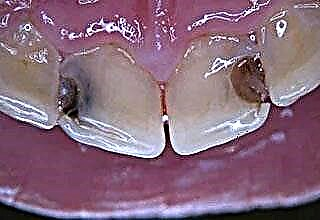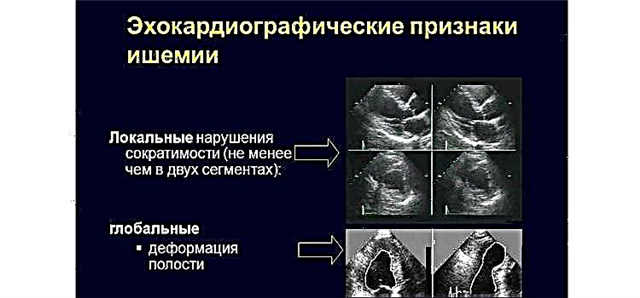Tonsillopharyngitis (catarrhal angina) is an otolaryngological disease, accompanied by superficial lesions of the mucous epithelium in the oropharynx and lymphoid formations (palatine tonsils). Pathology is one of the simplest forms of angina, but with untimely therapy it can be complicated by purulent processes, the progression of which leads to the development of pyelonephritis, rheumatism, sinusitis, etc.
As a rule, ENT disease occurs against the background of the development of bacterial flora in the mucous membrane of the oropharynx. Therefore, the treatment of catarrhal sore throat involves the use of antimicrobial and antiphlogistic drugs. When the inflammatory process is chronized, patients undergo tonsillectomy, during which a specialist removes the tonsils affected by the infection.
Etiology
Often, the development of acute tonsillopharyngitis in adults is due to a decrease in the body's resistance, which often happens in the autumn-spring period with hypovitaminosis. A decrease in local immunity stimulates the development of pathogenic bacteria and viruses, the uncontrolled reproduction of which leads to intoxication of the body. The causative agents of the disease can be:
- streptococci;
- staphylococci;
- yeast-like fungus;
- adeno- and rhinoviruses;
- spirochetes.
In 7 out of 10 cases, catarrhal angina in adults occurs against the background of the development of beta-hemolytic streptococcus.
Conditionally pathogenic microorganisms begin to multiply actively only when the reactivity of the organism decreases. The provocateurs of pathological processes are most often:
- hypothermia;
- hypovitaminosis;
- chronic diseases;
- overwork and stress;
- secondary immunodeficiency;
- irrational intake of medications.
When favorable conditions arise, pathogenic agents begin to actively develop, as a result, the mucous membranes of the oropharynx are affected. As a result, intoxication of the body occurs, which contributes to the appearance of symptoms characteristic of tonsillopharyngitis.
Primary signs
Treatment of infectious diseases at home is possible only after an accurate diagnosis. Due to the similarity of the clinical manifestations of angina with influenza and acute respiratory viral infections, many patients try to treat catarrhal processes in the ENT organs with antiviral drugs. If bacteria are the causative agents of the disease, the use of antiviral agents will be ineffective, which can subsequently lead to the generalization of inflammation and the appearance of complications.
As a rule, tonsillopharyngitis begins acutely, as evidenced by myalgia and general malaise. Within 3-4 hours after infection, patients complain about:
complain about:
- lack of appetite;
- lethargy;
- headache;
- subfebrile fever;
- dry mouth;
- pain when swallowing.
Relief of inflammation at the initial stages of the development of pathology prevents the spread of infection to the palatine and pharyngeal tonsils.
The above symptoms occur due to inflammation of the ciliated epithelium lining the surface of the oropharynx. Approximately 2-3 days of the development of pathology in adults, a painless enlargement of the lymph nodes is observed.
Clinical picture
The characteristic symptoms of catarrhal sore throat appear on the 4th day after infection of the body. It should be noted that the course of pathology in adults and children has several important differences. As a rule, febrile fever is observed in preschool children, accompanied by intense salivation. Typical manifestations of tonsillopharyngitis in adults are:
- hyperthermia (over 38 degrees);
- increasing sore throat;
- regional lymphadenitis;
- severe myalgia;
- headache;
- discomfort in the articular joints.
Important! Febrile fever in children under 7 years of age can cause seizures.
As the inflammation progresses, some symptoms may worsen. In particular, at an advanced stage of the development of pathology, there is an increase in headache, which often radiates to the neck. Symptomatic treatment of the disease at home can lead to the formation of abscesses on the pharyngeal mucosa and palatine tonsils.
Features of tonsillopharyngitis
It is not recommended to treat tonsillopharyngitis on your own at home. Even with successful treatment of pathology and a clear regression of inflammation, 3% of patients develop rheumatism, 5% develop glomerulonephritis, and another 6% develop heart problems. To reduce the risk of complications, bed rest must be strictly observed during the first 5 days of the intensive development of pathology.
Even with successful treatment of pathology and a clear regression of inflammation, 3% of patients develop rheumatism, 5% develop glomerulonephritis, and another 6% develop heart problems. To reduce the risk of complications, bed rest must be strictly observed during the first 5 days of the intensive development of pathology.
Catarrhal sore throat has a number of important features that distinguish it from other forms of ENT disease:
- with the development of pathology, intoxication of the body occurs much earlier than the symptoms of inflammation appear;
- often angina is accompanied by discomfort in the abdomen, which is due to the penetration of pathogens into the gastrointestinal tract through saliva;
- when palpation of enlarged lymph nodes, there are no discomfort;
- hyperthermia lasts for at least 5-6 days;
- catarrhal processes in the mucous membrane provoke severe throat edema.
It is necessary to treat inflammation when the first signs of pathology appear. Late passage of drug therapy contributes to the progression of the disease and deeper tissue damage.
Establishing diagnosis
How should tonsillopharyngitis be treated in adults? To begin with, you should undergo differential diagnostics from a specialist who can accurately determine the type of pathology and infectious agents. After a detailed study of the patient's history and visual examination of the affected ENT organs, the doctor conducts diagnostics, which allows distinguishing the ENT disease from:
- meningitis;
- flu;
- pharyngitis;
- mononucleosis;
- diphtheria;
- candidiasis;
- typhoid;
- ARVI;
- listeriosis.
Depending on the degree of development of the disease, treatment can be carried out in a hospital or at home.
In the course of laboratory tests, a specialist with 95% accuracy determines the causative agents of ENT diseases, which contributes to the preparation of an optimal treatment regimen. For this, a smear is taken from the focus of inflammation, as well as a biochemical and general analysis of blood and urine.
General principles of therapy
The uncontrolled development of pathogens in the body can cause infection not only of the mucous membrane of the oropharynx, but also other vital systems and organs. For this reason, the therapy of pathology at home presupposes strict adherence to the following recommendations:
- bed rest for 5-6 days;
- refusal of spicy and solid foods;
- abundant fluid intake;
- quitting alcohol and smoking;
- the use of vitamin-containing preparations.
Catarrhal sore throat is one of the high-contact diseases transmitted not only by airborne droplets, but also through dishes and other household items. For this reason, for the period of treatment, the patient should be assigned to a separate room, providing him with personal hygiene products and dishes.
The consumption of solid food can lead to mechanical damage to the inflamed mucous membrane, which is fraught with an even greater decrease in local immunity.
Antibacterial therapy
What antibiotics to drink for catarrhal angina? Pathogenetic therapy of ENT disease involves the use of antibacterial drugs.The active components of drugs contribute to the destruction of pathogens, which is due to the destruction of their cellular structures and inhibition of bacterial DNA synthesis.
It is most advisable to treat inflammation with drugs of the penicillin series, since they contain a minimum amount of toxic substances. Effective antimicrobial agents include:
- "Amoxicillin" is a bactericidal semi-synthetic antibiotic with a broad spectrum of action, the components of which are active against many gram-negative and gram-positive microbes;
- "Hikontsil" - antimicrobial drug that inhibits the production of transpiptedase, which prevents the development of daughter bacterial cells;
- "Augmentin" - broad-spectrum tablets that have pronounced bacteriolytic properties; active against most aerobic and anaerobic bacteria;
- "Sumamed" is an antibacterial drug that helps to eliminate inflammatory reactions in the mucous membranes of the ENT organs caused by gram-negative bacteria.
Some pathogens that release beta-lactamase are resistant to the effects of penicillin drugs. To destroy them, cephalosporins and macrolides are used.
It should be noted that only a specialist can prescribe competent treatment of catarrhal sore throat. The choice of drugs depends on the age of the patient, the stage of development of the pathology, the nature of the inflammation and complications.
Alternative medicine
What folk remedies can be used to treat tonsillopharyngitis at home? In parallel with taking antibiotics, it is advisable to use decoctions and infusions based on medicinal herbs that have antiflogistic and antimicrobial effects. As symptomatic treatment can be used:
- herbal tea: mix 1 tbsp. l. medicinal chamomile, St. John's wort and eucalyptus. Pour 1 liter of boiling water over the herbs and leave for at least 3 hours. With a strained infusion, rinse at least 4-5 times a day;
- decoction of oak bark: pour 2 tbsp. chopped oak bark ½ liter of boiling water and boil for at least 5 minutes. Gargle with the prepared broth 3-4 times a day;
- beet juice: Mix 100 ml beet juice with 1 tbsp. vinegar and 300 ml of boiled water. Use the rinse solution 3 times a day for a week.
Treatment of ENT diseases at home using alternative medicine should be agreed with the doctor. Some of the above drugs can provoke allergies and even more swelling of the oropharyngeal mucosa.



